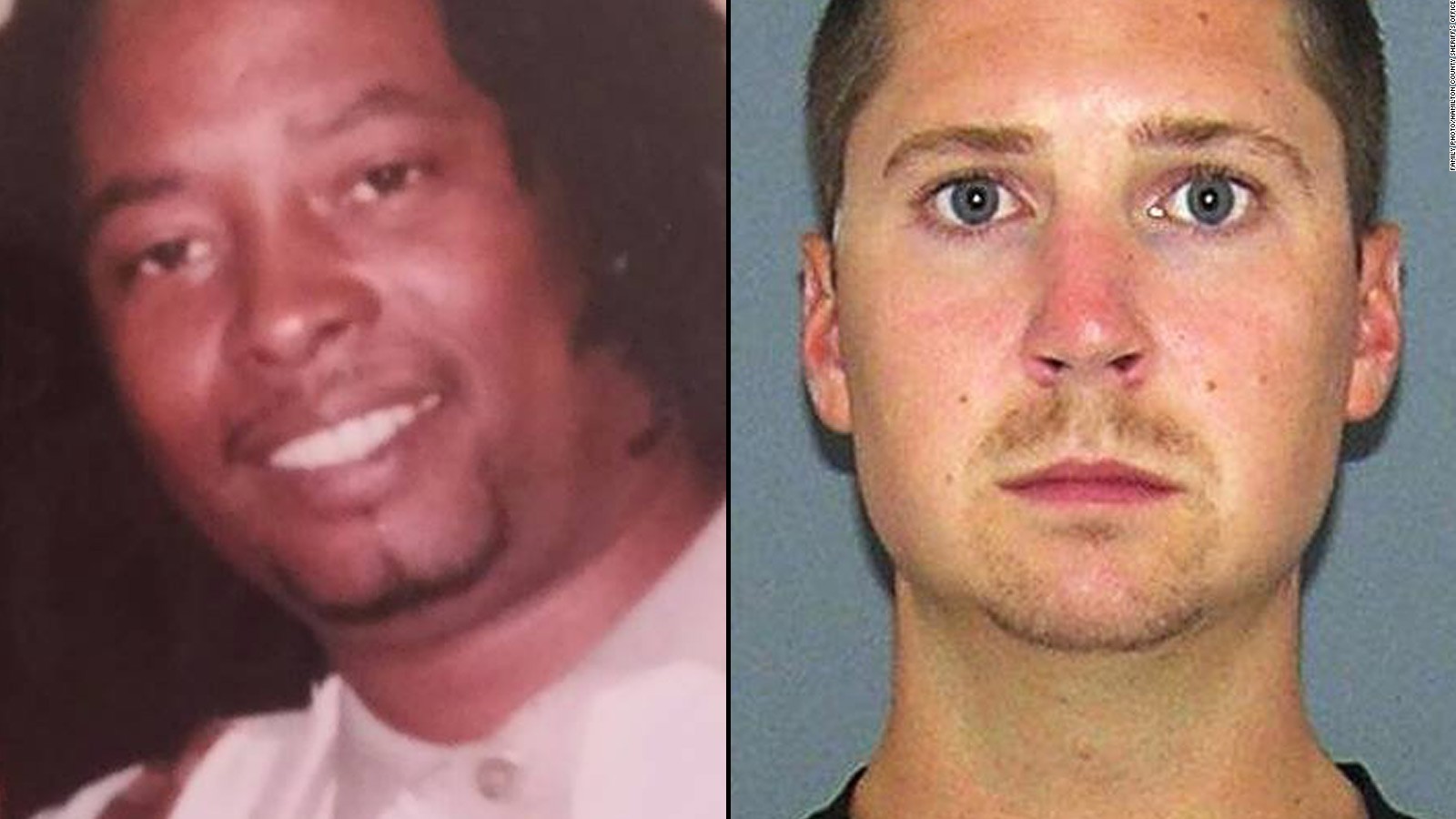An Ohio judge declared a mistrial Friday in the case against former University of Cincinnati police Officer Ray Tensing, who fatally shot Samuel DuBose during a traffic stop in July 2015.
DuBose's killing was one in a series of high-profile, officer-involved shootings that sparked nationwide protests over the use of force by police.
Tensing, who is white, was fired from his job and arrested after the shooting. Tensing faced trial a second time after a jury could not come to agreement in November and the judge declared a mistrial.
The first trial of a former University of Cincinnati police officer who fatally shot a motorist during a 2015 traffic stop ended in a mistrial after more than 25 hours of deliberations.
On Friday morning, a state court judge ordered a deadlocked jury in Ray Tensing's second trial to resume deliberations after more than 27 hours in the jury room.
In a note to the court, jurors wrote, "We are unable to come to a unanimous decision on either count after thorough deliberation. How should we proceed?"
Judge Leslie Ghiz told the jury, "Ladies and gentlemen, I'm going to send you back for a little while longer," before then reading a charge encouraging them to reconsider their positions and listen to one another as they move ahead with deliberations.
Tensing is charged with murder and voluntary manslaughter. He testified he shot Samuel DuBose because he feared for his life after his left arm became trapped inside DuBose's moving car on July 19, 2015.
Convictions rare in police shootings
Tensing is being tried at a time of increasingly strained relations between law enforcement officers and the communities they serve.
He is the third US law enforcement officer to be tried for shooting a black man in the last week. Convictions are rare.
On Wednesday, Dominique Heaggan-Brown, the former Milwaukee police officer who fatally shot Sylville Smith during an August foot chase, was found not guilty of first-degree reckless homicide.
A week ago, Minnesota police Officer Jeronimo Yanez was acquitted of one count of second-degree manslaughter and two counts of intentional discharge of a firearm that endangers safety in the fatal shooting of Philando Castile during a traffic stop last year. In May, Tulsa police Officer Betty Shelby was acquitted in the shooting death of Terence Crutcher, an unarmed black man.
'Threat to his life and well-being'
In closing arguments, Tensing's attorney, Stew Mathews, told the jury that Dubose "elected to start that car, put it into gear and take off with Ray Tensing's arm trapped inside it. I submit to you that is a threat to his life and to his well-being."
Prosecutors broke down body camera video frame-by-frame to rebut Tensing's assertion that he was being dragged down the street.
Hamilton County Assistant Prosecutor Seth Tieger told the jury that Tensing made a tactical error when he reached his left arm inside DuBose's car and then escalated the problem by firing his weapon.
'Ray Tensing had a choice'
"Ray Tensing had a choice to make that evening," Tieger said. "Do I disengage and let Sam DuBose drive away or do I kill him?"
Asserting the video did not definitively prove the prosecution's arguments about whether Tensing was dragged, Mathews reminded the jury of "Sully," the 2009 movie about airline pilot Chesley Sullenberger who became a hero by making an emergency landing on the Hudson River with no loss of life.
Using computer simulations, federal investigators argued that Sullenberger made a bad decision and could have reached nearby airports to land.
"They were about to hang him out to dry," Mathews said, but authorities eventually came down on the pilot's side because "human factors" were considered.
Tensing pulled DuBose over because his car didn't have a front tag and because his back tag was registered to a driver with a suspended license, DuBose's girlfriend, Mathews said.
Mathews said DuBose had motive to drive away from the traffic stop because he lacked a license and carried a felony amount of marijuana in the vehicle.
Tieger agreed with defense attorneys that DuBose did not comply with Tensing's commands but said that wasn't justification to shoot.
"Noncompliance does not equal not guilty," he said.
University of Cincinnati settles with family
In November, a jury could not come to agreement on Tensing's guilt or innocence, and the judge declared a mistrial.
DuBose, who was black, was killed following a series of high-profile, officer-involved shootings that sparked nationwide protests over the use of force by police.
Tensing, who is white, was fired from his job and arrested. He was released from custody after posting 10% of his $1 million bond.
The University of Cincinnati agreed in January 2016 to pay $4.85 million to the family of DuBose. The school also agreed to set up a memorial to DuBose on campus, invite the family to take part in meetings on police reform, issue a formal apology and provide free undergraduate education to DuBose's 12 children.





